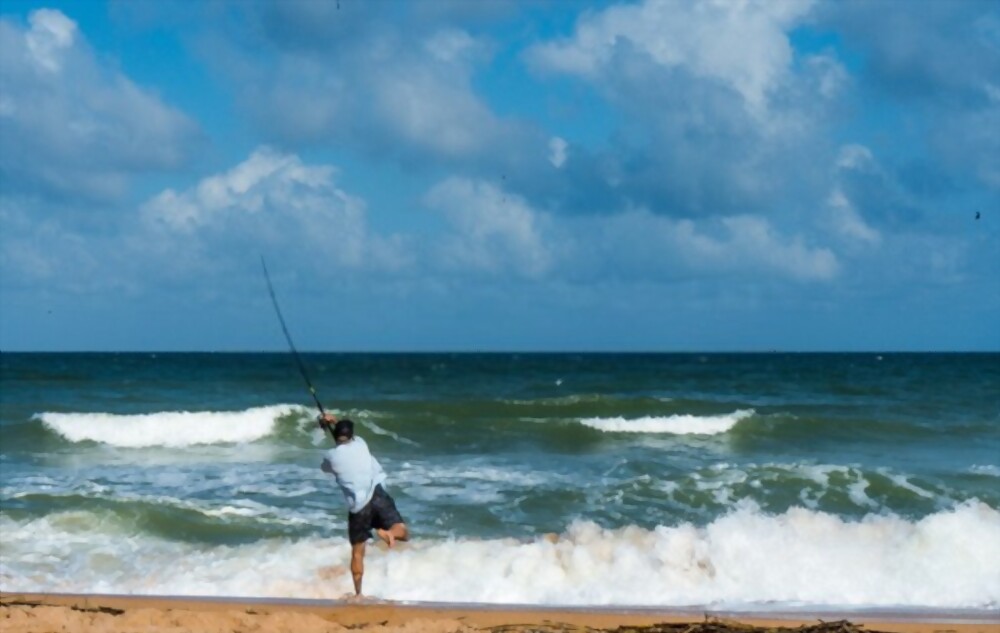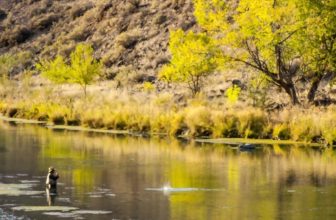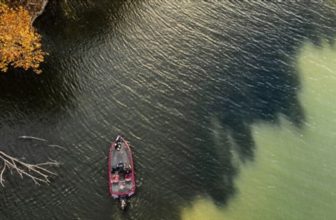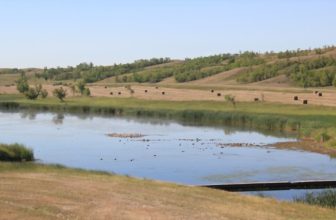
Florida Fishing License
If you’re planning to go fishing in Florida, you’ll need to obtain a Florida fishing license before you cast your line. This is a requirement for all anglers, regardless of whether you’re a resident or a visitor to the state. Without a license, you risk facing hefty fines and penalties that can put a damper on your fishing trip.
There are several types of Florida fishing licenses available, depending on your age, residency status, and the type of fishing you plan to do. Whether you’re looking to fish in freshwater or saltwater, for a few hours or for a whole year, there’s a license option that will suit your needs.
In this article, we’ll guide you through everything you need to know about obtaining a Florida fishing license, the rules and regulations you need to follow while fishing in the state, and some helpful tips for making the most of your fishing experience.
Why You Need a Florida Fishing License
If you’re planning on casting a line in Florida’s waters, you’ll need a fishing license to legally reel in those fish! The state of Florida requires all anglers above the age of 16 to obtain a fishing license before engaging in any fishing activity. This is to ensure that the fish population is protected, and that the state’s natural resources are not damaged due to overfishing.
Not only is it a legal requirement, but having a fishing license also allows you to fish in certain areas that are only accessible to licensed anglers. This means that you’ll have access to a wider range of fishing opportunities and can explore different fishing spots that wouldn’t be available to non-licensed anglers.
Additionally, having a fishing license shows that you’re a responsible angler who’s committed to preserving the state’s natural resources for future generations to enjoy.
Fishing without a license can result in hefty fines and even criminal charges, so it’s important to make sure that you have a valid license before casting your line. You can obtain a Florida fishing license easily online, by phone, or by visiting a local licensing agent.
So, make sure you’ve got your license before heading out to catch some of the amazing fish species that Florida has to offer!
Types of Florida Fishing Licenses Available
You can choose from a variety of licenses to fit your fishing needs and preferences. The most common type of license is the saltwater fishing license, which allows you to fish in Florida’s coastal waters. If you plan on freshwater fishing, you’ll need a freshwater fishing license. If you plan on both saltwater and freshwater fishing, you can purchase a combination license.
In addition to the standard licenses, there are also special licenses available for certain groups of people. For example, if you’re a Florida resident who’s disabled or a senior citizen, you may be eligible for a discounted or even free fishing license. Similarly, active-duty military members and their families can purchase a military license at a reduced rate.
No matter which license you choose, it’s important to make sure you have it with you when you go fishing. Not having a valid license can result in fines and even legal trouble. So take the time to research your options and choose the license that best fits your needs.
Then, get out there and enjoy all the great fishing Florida has to offer!
How to Obtain Your Florida Fishing License
Ready to hit the water and reel in some big catches? Here’s how to get your hands on the necessary permit to make it happen!
First things first, decide which type of fishing license you need. There are options for freshwater, saltwater, and combination licenses, as well as special permits for things like lobster or snook fishing.
Once you have determined the appropriate license for your needs, you can purchase it online through the Florida Fish and Wildlife Conservation Commission’s website or in person at a licensed retailer. To purchase your license online, simply navigate to the FWC website and select the ‘License and Permit’ option.
From there, you can choose what type of license you need and provide the necessary information and payment. If you prefer to buy your license in person, you can visit any authorized retailer, such as a sporting goods store or bait and tackle shop. Be sure to bring with you any required documentation, such as proof of residency or age, and have your payment ready.
Once you have obtained your Florida fishing license, be sure to familiarize yourself with the rules and regulations. These can vary depending on the type of license you have and the area you will be fishing in. But with your valid permit in hand and a little bit of knowledge under your belt, you’ll be ready to hit the water and enjoy all the fishing opportunities that Florida has to offer!
Rules and Regulations for Fishing in Florida
Before setting out on your fishing adventure in the Sunshine State, make sure you’re up to speed on the regulations and guidelines that apply to your chosen fishing spot. These rules and regulations are in place to ensure that Florida’s aquatic resources remain healthy and abundant for future generations.
Here are a few things to keep in mind:
- Size and bag limits: The state of Florida has specific size and bag limits for different kinds of fish. Make sure you know these limits before you start fishing, as exceeding them can result in fines or even legal trouble.
- Licenses and permits: As we’ve discussed earlier, a valid Florida fishing license is required for most types of fishing in the state. Additionally, some types of fishing may require additional permits or stamps. Make sure you have all the necessary documents before you start fishing.
- Restricted areas: Certain areas of Florida’s waterways are off-limits to fishing or may have specific restrictions in place. For example, some areas may be designated as “no fishing zones” to protect endangered species. Be sure to check any signs or regulations before you start fishing.
- Catch and release: If you’re not planning on keeping the fish you catch, it’s important to handle them carefully and release them back into the water as quickly as possible. This helps ensure that they survive and can continue to reproduce, maintaining healthy fish populations in Florida’s waters.
By following these guidelines, you can help preserve Florida’s aquatic resources and ensure that future generations can enjoy the state’s unique fishing opportunities. Remember, it’s up to all of us to protect these valuable resources. So grab your fishing gear, get your license, and hit the water—just make sure you’re following the rules!
Tips for Fishing in Florida Waters
If you’re planning a fishing trip in the Sunshine State, it’s helpful to know some tips for catching the best fish in Florida’s abundant waters. The first tip is to invest in a good quality fishing rod and reel. Florida’s waters are home to a variety of fish species, some of which can weigh over 100 pounds. A sturdy rod and reel will help you handle the weight and power of these big fish.
Another important tip is to pay attention to the tides. Florida’s tidal currents play a significant role in the movement of fish. The best time to fish is during the incoming or outgoing tide, as this is when fish are most active. Check the tide charts before you head out and plan your fishing trip accordingly.
Lastly, make sure you have the right bait and lures for the fish you’re targeting. Different fish species prefer different types of bait and lures, so it’s important to do your research beforehand. The table below provides a quick reference guide for some of the most popular fish species in Florida and the bait and lures that work best for them. With these tips in mind, you’ll be well on your way to a successful fishing trip in Florida’s beautiful waters.
| Fish Species | Best Bait | Best Lures |
|---|---|---|
| Snook | Live bait (shrimp, pinfish, mullet) | Topwater plugs, soft plastics |
| Redfish | Live bait (shrimp, crabs, pinfish) | Gold spoons, soft plastics |
| Tarpon | Live bait (crabs, mullet) | Jigs, swimbaits |
| Trout | Live bait (shrimp) | Jigs, soft plastics |
Frequently Asked Questions
What is the penalty for fishing without a license in Florida?
If you’re caught fishing without a license in Florida, you could face a fine of up to $500 and even spend time in jail. Save yourself the trouble and make sure to get a license beforehand.
Can non-residents purchase a Florida fishing license?
You can purchase a Florida fishing license as a non-resident. It allows you to legally fish in the state’s waters and avoid penalties for fishing without a license. Get your license online or at a local retailer.
Are there any discounts available for seniors or disabled individuals when obtaining a Florida fishing license?
As a senior or disabled individual, you may be eligible for discounts when obtaining a Florida fishing license. Contact the Florida Fish and Wildlife Conservation Commission to inquire about available discounts and how to qualify.
How long is a Florida fishing license valid for?
A fishing license in Florida is valid for one year from the date of purchase. You’ll need to renew it annually if you want to continue fishing legally in the state’s waters.
Is it legal to catch and release fish without a license in Florida?
You must have a valid fishing license to catch or release fish in Florida, with few exceptions. Even if you don’t plan to keep the fish, it’s still necessary to have a license to comply with state regulations.
Conclusion
So, now you know why you need a Florida fishing license and the types of licenses available to you. You also know how to obtain a license, the rules and regulations, and some tips for a successful fishing trip in Florida waters.
Remember to always carry your fishing license with you and follow the rules to avoid any legal trouble.
Fishing in Florida can be a fantastic experience, whether you’re a seasoned angler or just starting. With the right license and knowledge, you can enjoy the beautiful scenery and catch some amazing fish.
So, get your fishing gear ready, grab your license, and head out to the water for a day of fishing fun!







